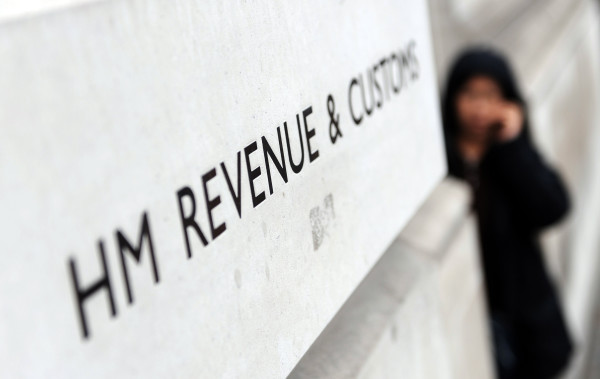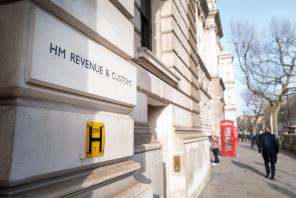

One of the best explanations of the interaction between tax evasion and money laundering occurred in the series Breaking Bad in 2010, when the character Saul Goodman, a corrupt attorney, explained how to launder the proceeds of drug manufacturing using a nail salon.
While this humorous explanation has subsequently proved popular with law tutors and students, it also illustrated a particular concern for law enforcement – the role of professionals in both tax evasion and money laundering matters.
Focus on professional advisers
The UK’s National Crime Agency and HM Revenue & Customs have both stated publicly that they will focus on the role of the professional adviser. The NCA’s latest National Strategic Assessment of Serious and Organised Crime described the criminal exploitation of accounting and legal professionals as a significant threat, referring to such advisers as “professional enablers” and whether they are complicit, negligent or unwitting, they are still key facilitators in the money laundering process.
In September 2018, HMRC issued an updated criminal investigation policy, which describes the kind of circumstances in which HMRC will launch a criminal investigation. As a revenue collection agency, HMRC focuses on dealing with fraud in the most cost-effective way possible, which usually means using its civil fraud procedures wherever appropriate.
Key Points
- National Crime Agency and HM Revenue & Customs have both stated they will focus on the role of the professional adviser in allegations of money laundering
- HMRC received a boost to its criminal powers following the introduction of the failure to prevent the facilitation of tax evasion offences
- HMRC wants to increase the number of criminal investigations that it undertakes into serious and complex tax crime
Criminal investigation tends to be reserved for cases where HMRC needs to send a strong deterrent message or where the conduct involved is such that only a criminal sanction is appropriate.
HMRC’s policy gives examples of circumstances in which it will pursue criminal rather than civil investigations and makes specific reference to cases involving money laundering, with a particular focus on advisers, accountants, solicitors and others acting in a “professional” capacity.
Leaks of information
Over the past decade, our expectations regarding privacy have fundamentally changed due to our relationship with social media and our phones. At the same time, the world has come to grips with the financial crisis and its aftermath and many people have lost confidence in our financial system.
A symptom of these changes may be the significant leaks of data held by law firms, corporate registries, banks and financial service providers into the public domain, such as the Panama and Paradise Papers.
HMRC’s criminal investigation policy makes it clear it will use internet data, which is available to anyone, including blogs and social networking sites.
Leaked information is not expressly referenced, though HMRC is not adverse to making use of information that has been leaked – or stolen, depending on your point of view – and it has been reported that HMRC expected to collect £100m of extra tax from information revealed within the Panama Papers.
New powers to pursue corporate bodies
In September 2017, HMRC received a boost to its criminal powers following the introduction of the failure to prevent the facilitation of tax evasion offences under the Criminal Finances Act 2017.
These two new offences apply to corporates (companies and partnerships) and cover the failure to prevent facilitation of tax evasion of either UK taxes or non-UK taxes by employees, agents or any other person performing services for or on behalf of the corporate (in each case acting in that capacity).
While the offences apply to all corporates, the associated guidance underlines that the offences will be a key risk for law firms, accountants and banks.
The offences do not change the activity that amounts to a crime, but rather focus on holding corporates to account.
The offences themselves are modelled on the strict liability corporate offence of failure to prevent bribery, contained within the UK’s Bribery Act 2010. That offence had originally been introduced because UK law regarding corporate criminal liability made it difficult for large corporates to be held to account; in order to establish corporate liability, a prosecutor generally needs to prove that the directing mind (that is, senior officers) of the corporate was complicit in the relevant criminality.
This has caused frustration for prosecutors. As a previous director of the Serious Fraud Office memorably put it: “The email trail has a strange habit of drying up at middle management level.”
Similar to the Bribery Act, there is a compliance defence available to such offences if the corporate had in place “reasonable” procedures designed to prevent the facilitation of tax evasion.
This defence provides a powerful incentive for corporates to put in place a compliance programme to combat tax evasion, and some commentators believe thevalue in the new offences isin incentivising the implementation of such a programme.
Others take the view that to incentivise compliance, it is necessary for there to be sufficient enforcement action that corporates take the offences seriously.
Enforcement trends
HMRC’s 2018 business plan states that HMRC wants to increase the number of criminal investigations it undertakes into serious and complex tax crime, focusing particularly on wealthy individuals and corporates, with the aim of increasing prosecutions in this area to100 a year.
Professionals involved in tax evasion and money laundering schemes have historically been investigated and prosecuted. The Criminal Finances Act will allow UK authorities to potentially pursue their employers in relation to the facilitation of tax evasion.
However, the Criminal Finances Act offences are not specifically referred to in HMRC’s business plan. Neither are deferred prosecution agreements, which allow the prosecution of a corporate to be suspended provided certain conditions are met.
Enforcement trends in the UK tend to follow the US. The US has been active in taking enforcement action in relation to tax evasion and has pursued accountancy firms and banks. For example, a big four accountancy firm has entered into a deferred prosecution agreement regarding tax fraud, and various banks have entered into non-prosecution agreements or deferred prosecution agreements.
However, whenever a new law comes onto the statute book, particularly one which deals with complex economic crimes, it can take a number of years for the first investigations and prosecutions to conclude and HMRC will in all cases balance the need to make examples of individuals and corporates against its tax collection mandate.
In due course, though, we are likely to see increased scrutiny of professional advisers and their firms – and more prosecutions.
Jonathan Pickworth is a partner and Jonah Anderson is an associate of White & Case



